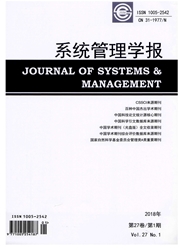
欢迎您!东篱公司
退出

 中文摘要:
中文摘要:
基于2003-2012年全国各省(市、自治区)面板数据,使用空间计量模型分析了农村改水工程和农村居民健康水平的关系,结果表明:在其他因素不变的条件下,农村改水工程的实施显著减少了当地农村居民氟斑牙和氟骨症的发病人数;并且这种健康效应具有正向的空间溢出特征,即本地农村居民健康水平的提高会间接地带来周边地区农村居民健康水平的提高。
 英文摘要:
英文摘要:
Using a provincial panel data from 2003 to 2012, we employ a spatial econometric model to empirically study the relationship between rural water treatment projects and health level of rural residents. The results show that rural water treatment projects significantly reduced the incidence of both dental fluorosis and skeletal fluorosis, ceteris paribus. Additionally, this health effect has positive spatial spillover characteristics. The improvement of health level of local residents indirectly leads to the health improvement of rural residents in adjacent areas.
 同期刊论文项目
同期刊论文项目
 同项目期刊论文
同项目期刊论文
 期刊信息
期刊信息
